Interview: Etai Benson Talks Hearing the Ocean Nightly in THE BAND'S VISIT
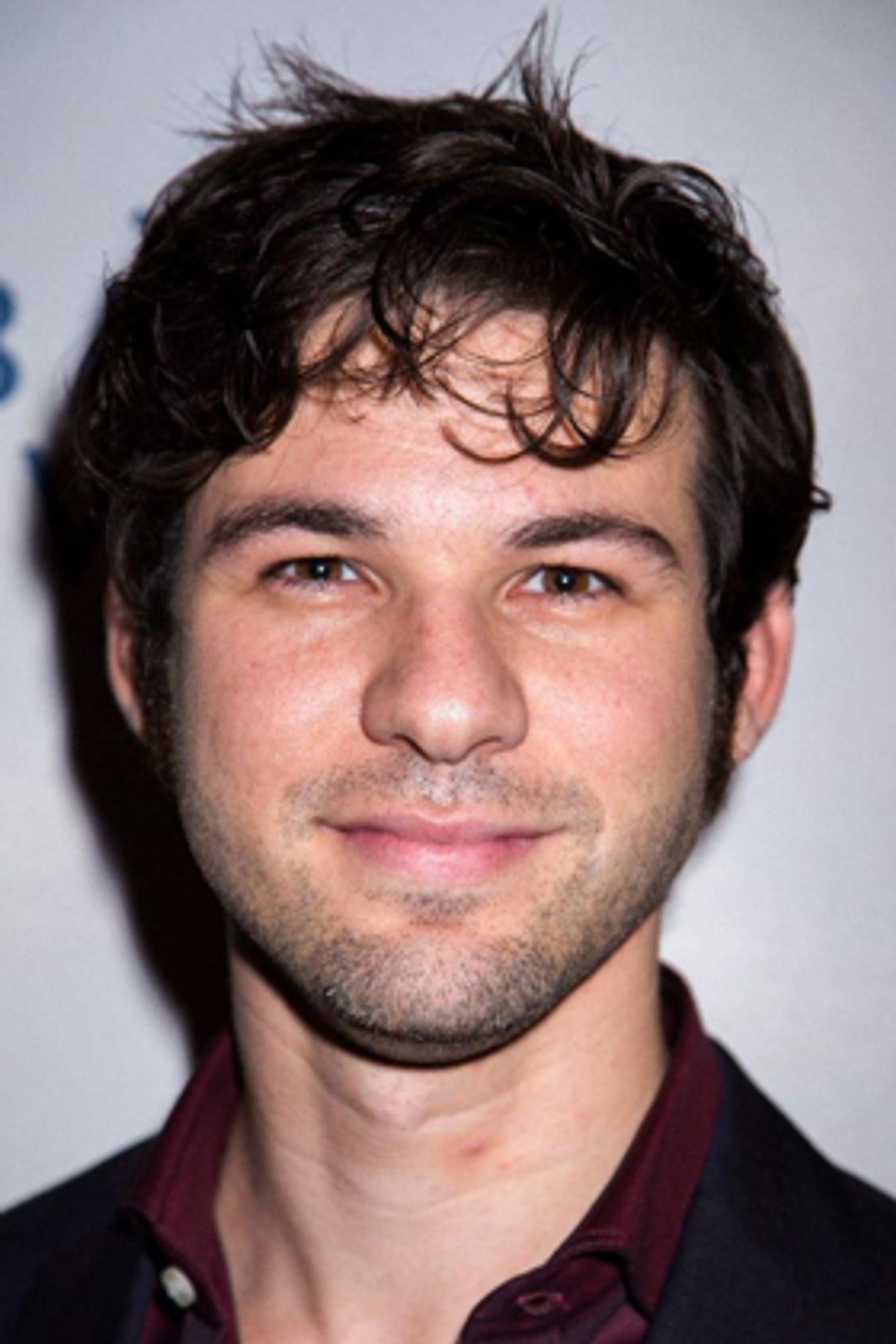
Etai Benson is currently charming audiences on Broadway with his portrayal of the young and terribly relatable Papi in The Band's Visit, not at all bleak and beige and blah, blah, blah...
Benson has previously been seen as Boq in Wicked and Adam Hochberg in An American in Paris. Yet it's this project, he says, that he fought the hardest for describing the film as very striking for him as an Israeli and Papi as something of a dream role. BroadwayWorld got to speak to him about the his journey with The Band's Visit and more, read below!
How did you get involved with the show?
I was working with our playwright Itamar Moses on a play in Dallas called The Fortress of Solitude and right when we were in tech, there was a press release announcing that The Band's Visit was being adapted into a musical and that he was the book writer. I remember having a conversation with Itamar at tech rehearsal and geeking out to him over how much I love this movie and how cool it was that he was writing it and just really nerding out with him over it. He said maybe I could be a part of it at some point, that he would keep me in mind. He and I had worked together before and we had always connected over our shared Isrealiness. Then two years later the auditioning came around, I called my agent who hadn't even heard of it. I said you haven't heard of this yet, but this show is going to happen and I have to be in it, look out for it. I bugged them every week about it for almost a year. Then finally the auditions for the workshop came around with Hal Prince directing. I even knew which character I wanted to play, I knew this story inside and out.
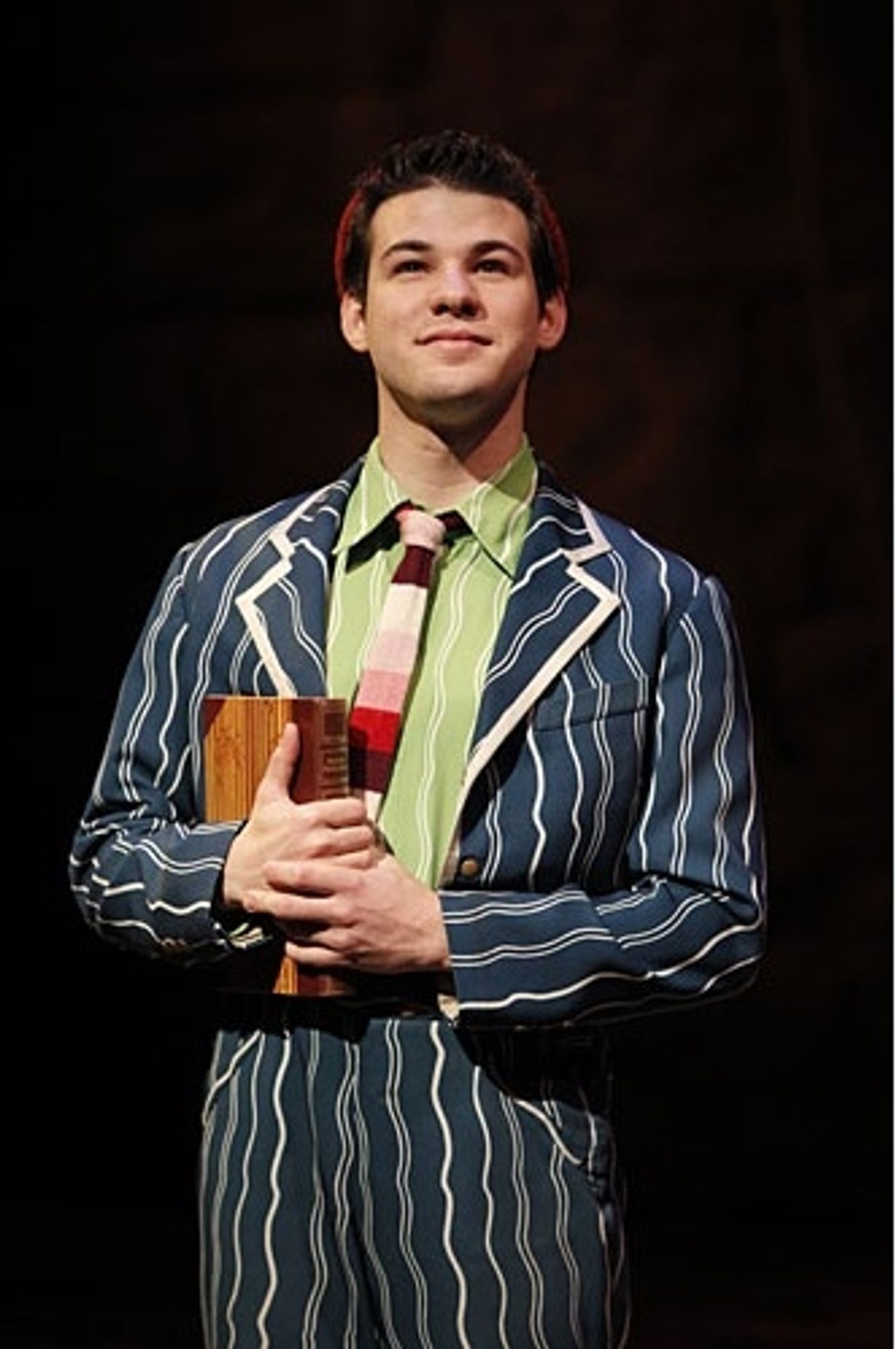 Ari'el Stachel and Sharone Sayegh were already good friends of mine from years back, so the three of us actually rehearsed and practiced together in our living room perfecting these scenes. Ari'el and I made a vow that we would play these roles in this show. All three of us had to audition, we had to go in three or four times. I sang the song, spoke Hebrew, worked on the scenes and we were just waiting in agony to hear. Of the three of us I booked it, and I spent that week working with Hal Prince and the cast and worked to develop the materials. After the workshop which was one of the most exciting weeks of my life, working with Hal Prince on this dream material, I found out that Hal was leaving the project and David Cromer was stepping in. We all had to re-audition and go in a couple times and meet David and I loved him, but as often happens a new director comes in and they have a new vision for the show, and I was not able to be a part of the Off-Broadway production.
Ari'el Stachel and Sharone Sayegh were already good friends of mine from years back, so the three of us actually rehearsed and practiced together in our living room perfecting these scenes. Ari'el and I made a vow that we would play these roles in this show. All three of us had to audition, we had to go in three or four times. I sang the song, spoke Hebrew, worked on the scenes and we were just waiting in agony to hear. Of the three of us I booked it, and I spent that week working with Hal Prince and the cast and worked to develop the materials. After the workshop which was one of the most exciting weeks of my life, working with Hal Prince on this dream material, I found out that Hal was leaving the project and David Cromer was stepping in. We all had to re-audition and go in a couple times and meet David and I loved him, but as often happens a new director comes in and they have a new vision for the show, and I was not able to be a part of the Off-Broadway production.
Instead, I went on the road with An American in Paris for a year, and I did get to see the show Off-Broadway and I loved it. I found out it was going to Broadway and I had gotten word from my agent that they were looking again for this role. I was ON IT. I fought, I campaigned really hard, I knew I had to get back into that room. I knew I needed to tell this story. Broadway, Off-Broadway, it didn't matter. I would have done this show in a basement downtown. I didn't care, I just wanted to be a part of this show. It spoke to me so deeply because there has never been really a musical that portrays modern Israelis and has Hebrew in it, there's never been a musical like this. I had to be a part of it.
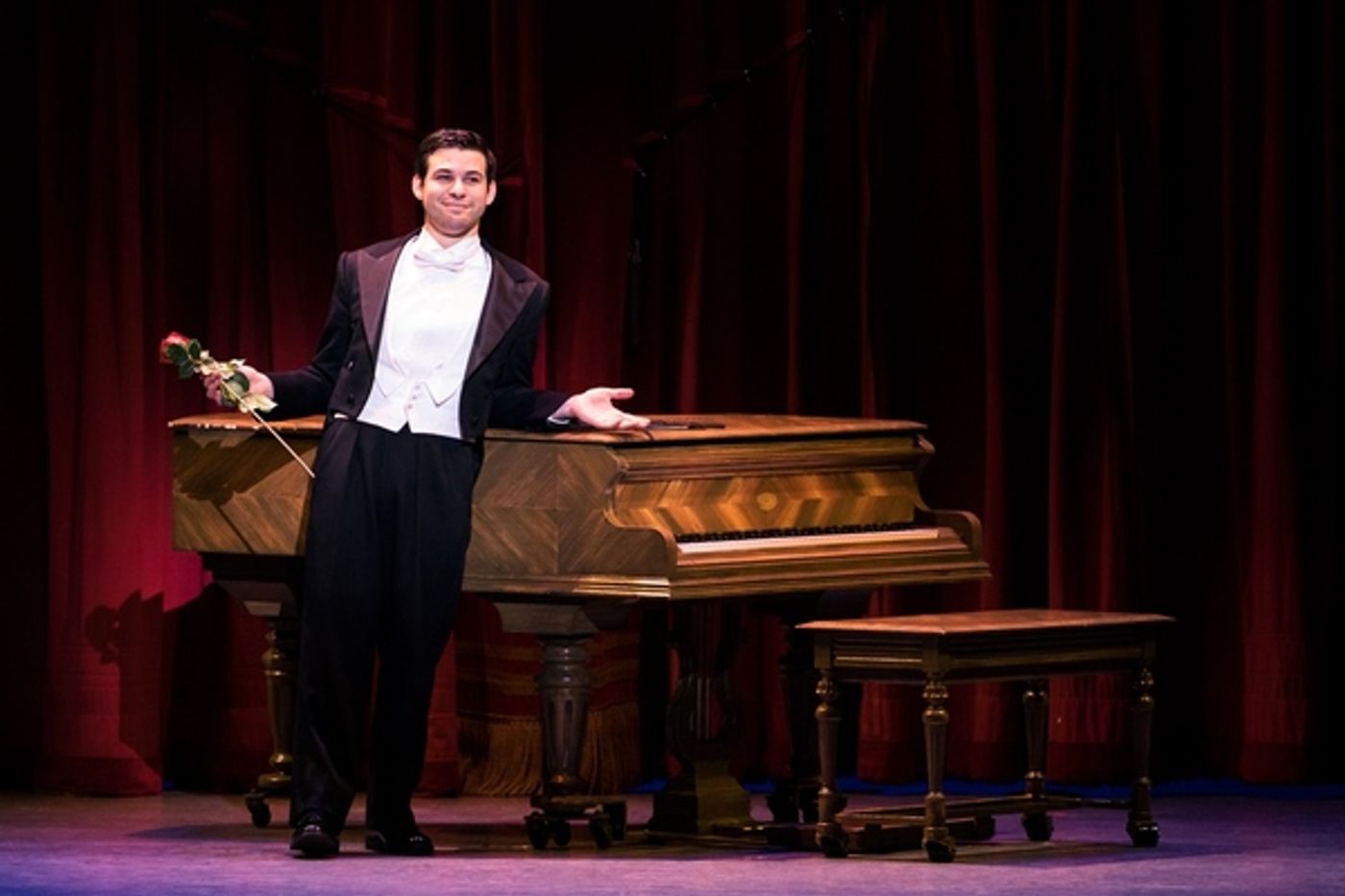 I flew in while I was on tour in Cleveland, did a workshop session with David Cromer, did a callback session with the whole team, and I left that room feeling like wow that was one of the best auditions I've ever given, no way I'm not getting it. Then I got a call and when it came I thought okay here comes the offer. Instead they said 'do you know how to roller skate?' I had not really roller skated maybe since I was five, but of course I said YES like a good actor does! I thought they just needed to hear that I could, but they said we need you to make a video of yourself roller skating while singing Papi's song from the show and we need it in about 24 hours.
I flew in while I was on tour in Cleveland, did a workshop session with David Cromer, did a callback session with the whole team, and I left that room feeling like wow that was one of the best auditions I've ever given, no way I'm not getting it. Then I got a call and when it came I thought okay here comes the offer. Instead they said 'do you know how to roller skate?' I had not really roller skated maybe since I was five, but of course I said YES like a good actor does! I thought they just needed to hear that I could, but they said we need you to make a video of yourself roller skating while singing Papi's song from the show and we need it in about 24 hours.
In that time, I ran to some hipster store in Brooklyn and bought some roller skates, then spent the next 24 hours learning how to skate, choreographing a routine, and being able to sing. And, of course, I had to go back to the tour so I flew back to Cleveland and did this all in the parking lot at night and other random spaces. There is a video out there in the universe of me in the lobby of the theatre in Cleveland skating while singing Papi's song and looking so exhausted!
For me, being a part of this show is just one of those stories of what it sometimes takes for us to get the job of our dreams. It was a lot of work, it was frustrating, but it was worth it and I would do it thirty more times.
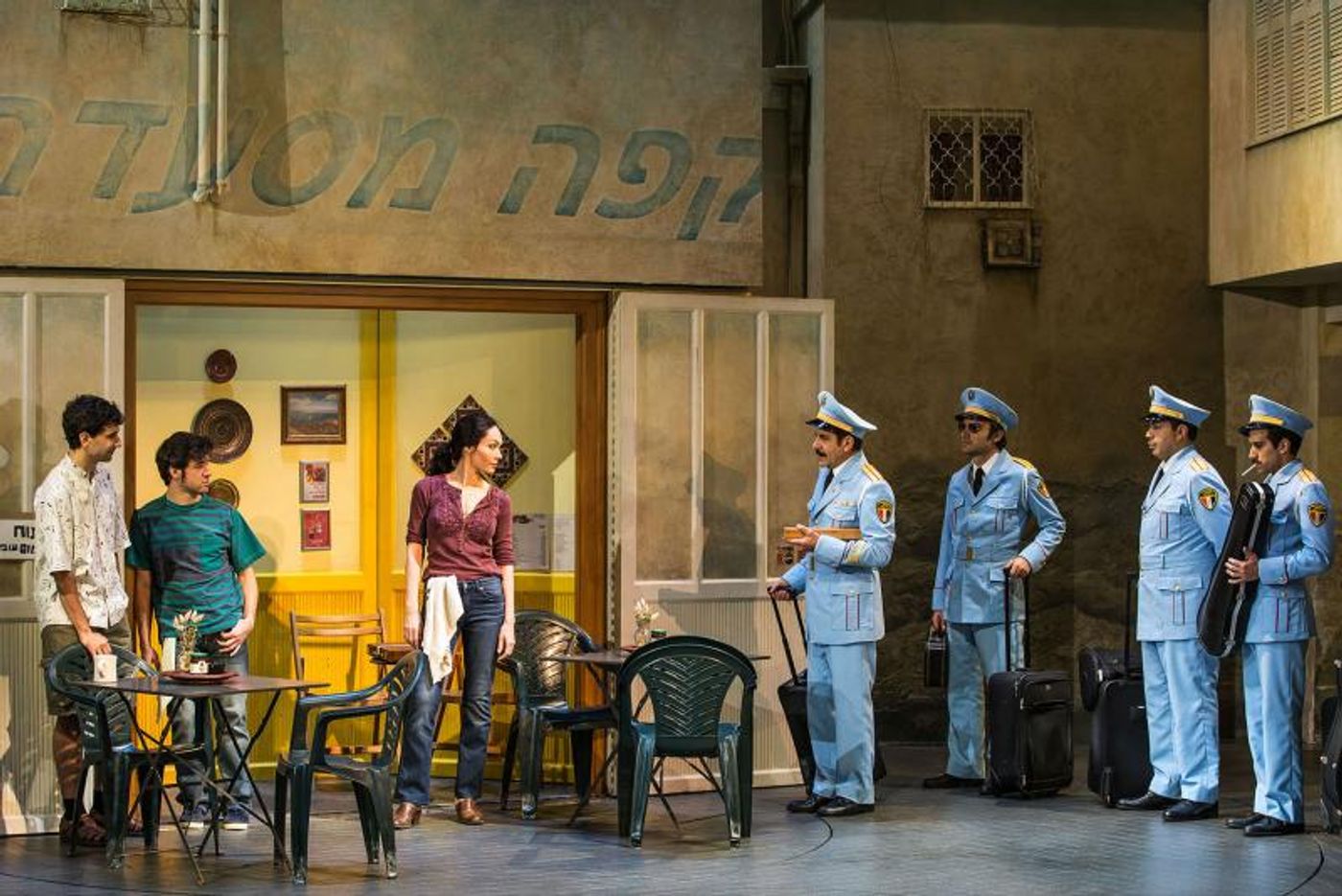 What do you think sets this show apart on Broadway? What are audiences connecting with?
What do you think sets this show apart on Broadway? What are audiences connecting with?
Stylistically it's very different from any musical I've ever seen. Generally the rule is louder, faster, funnier, and our show, much like the film, flips those roles around. Our show is very funny, there's a lot of comedy. But tonally, it's much closer to a play than a musical. Things happen not in musical theatre time, but in real life time. When these disparate people, these Egyptians and Israelis, are trying to communicate, a lot of it is silence. They're just staring at each other trying to think of how to talk and what to say and how to communicate. We never see that kind of reality in musicals.
With the subject matter, it's often said of writing that the more specific something is, the more universal it becomes. I think that happens with our show. The story is told through the very specific lens of the Middle East, but ultimately it's a human story. The themes we're speaking about as far as kindness, loneliness, the human condition, these are basic human emotions that everyone feels. No matter what country you come from, no matter what color your skin is, no matter what language you speak, everyone feels these things. That's really the central conceit of our show. These people who are supposedly different, supposedly enemies, connect over very primal and basic human things like love and music and I need a place to stay. I'd like to think that even if someone who is considered your other, or your enemy, came to your door and said look I'm lost, I don't have food, I don't have money, I need somewhere to sleep for the night, that most people would say okay. People connect to that. And right now I believe people are really looking for that.
I think in many ways, in the state of our country, we've forgotten what it is to connect with the other side and to be kind to each other. It's refreshing to see a story that has all of that, but yet doesn't sledgehammer these messages down your throat. Nothing is really on the nose in our play, a lot of it is subtextual, we really force the audience to listen. People seem to like that. There's theatre where the job of the play is to make the audience lean back and forget everything and escape. But there's also theatre that forces you to lean in. To listen. And I think that's the category that we fall into. And I think theatre-goers are hungry for that.
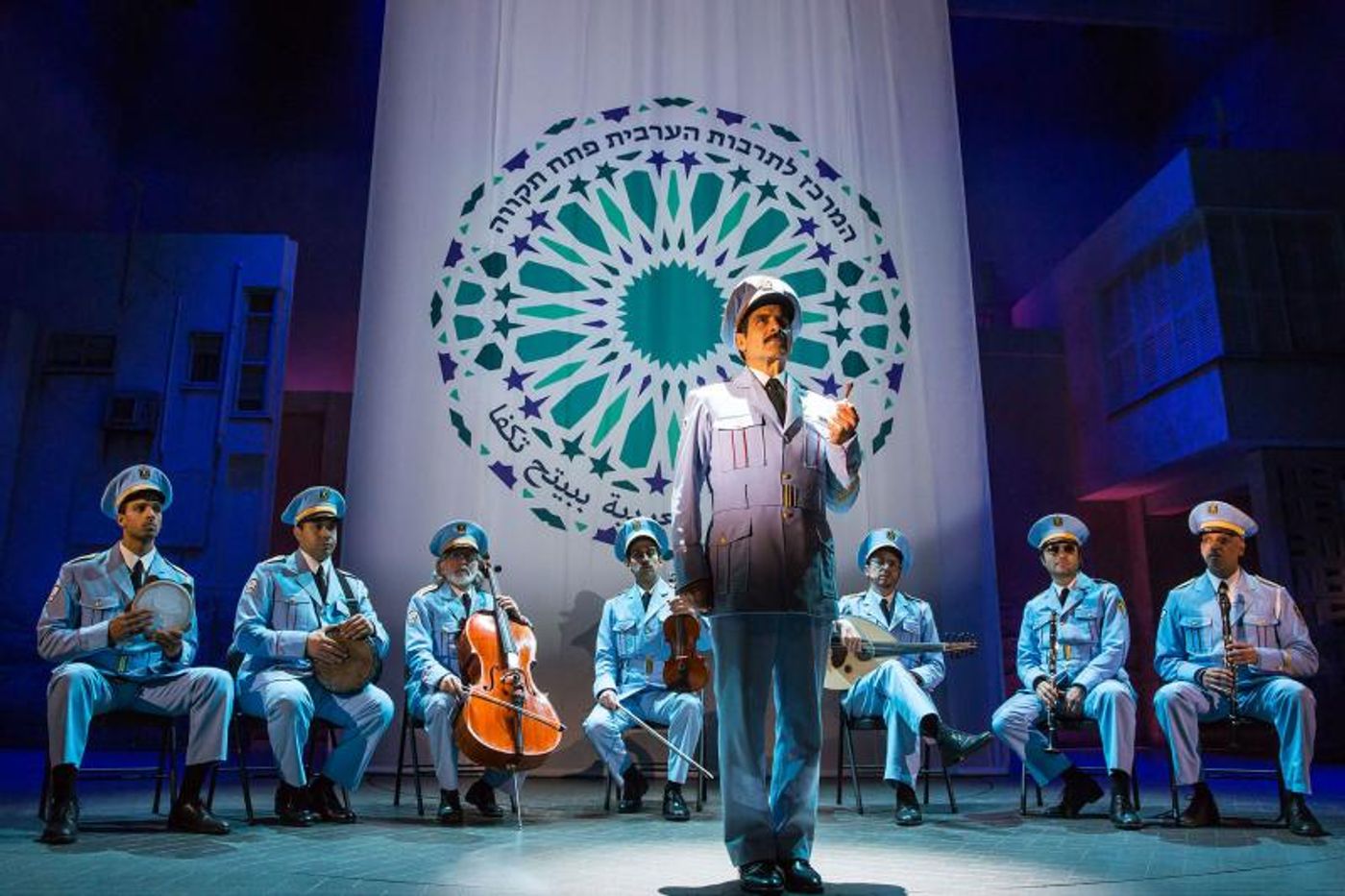 This is a show that really allows the audience to breathe and to feel. I felt like I walked out of the theatre with more feeling and sensation than I have with a lot of other shows.
This is a show that really allows the audience to breathe and to feel. I felt like I walked out of the theatre with more feeling and sensation than I have with a lot of other shows.
I often hear from friends who see the show that it really sneaks up on you emotionally. They don't expect to suddenly be in tears at the end, and they can't necessarily explain why they're in tears at the end. It's hard even for me to explain it. The very first thing we say in our show is projected and says 'A group of musicians came from Egypt to Israel. You probably didn't hear about it. It wasn't very important.' That line is repeated. Already we're setting up that this show is made up of tiny moments that when they happen to you can seem like very insignificant, ephemeral moments, but added up together, they can change lives. Each scene has a tiny moment of reaching out and of kindness and generosity. And yes, each one of those moments may seem like a tiny little blip, a gesture that doesn't seem important at all. But at the end, after seeing one after another after another, it adds up to something really powerful and really emotional. After you've gotten to know all these characters you suddenly see them all singing together for the first time and they're singing about loneliness, cause that's one of the things that unites all of them. It gives you chills.
How do you take your humorous character and his laugh out loud moments and keep him grounded in the humanity of the show?
I think Papi is one of the most relatable characters in the show. I keep saying I'm basically just playing myself in middle school. Everyone goes through this kind of phase at some point in their life. I think the fact that it's so relatable is what makes it human. I'm just playing the themes as honestly and realistically as I can.
Obviously the song does a lot of the work. David Yazbek wrote such an incredible score. The melody with those lyrics especially that descending chromatic line, it sounds like whining almost. It builds and gets more and more hysterical. That's what Yazbek does so well, he really sets the inner lives of these people to music and lyrics so perfectly. Honestly, I feel like I don't have to do that much to accomplish anything. Sometimes the less that I do in the song, the funnier and more effective it is because the words and the circumstances and the emotions just take care of themselves.
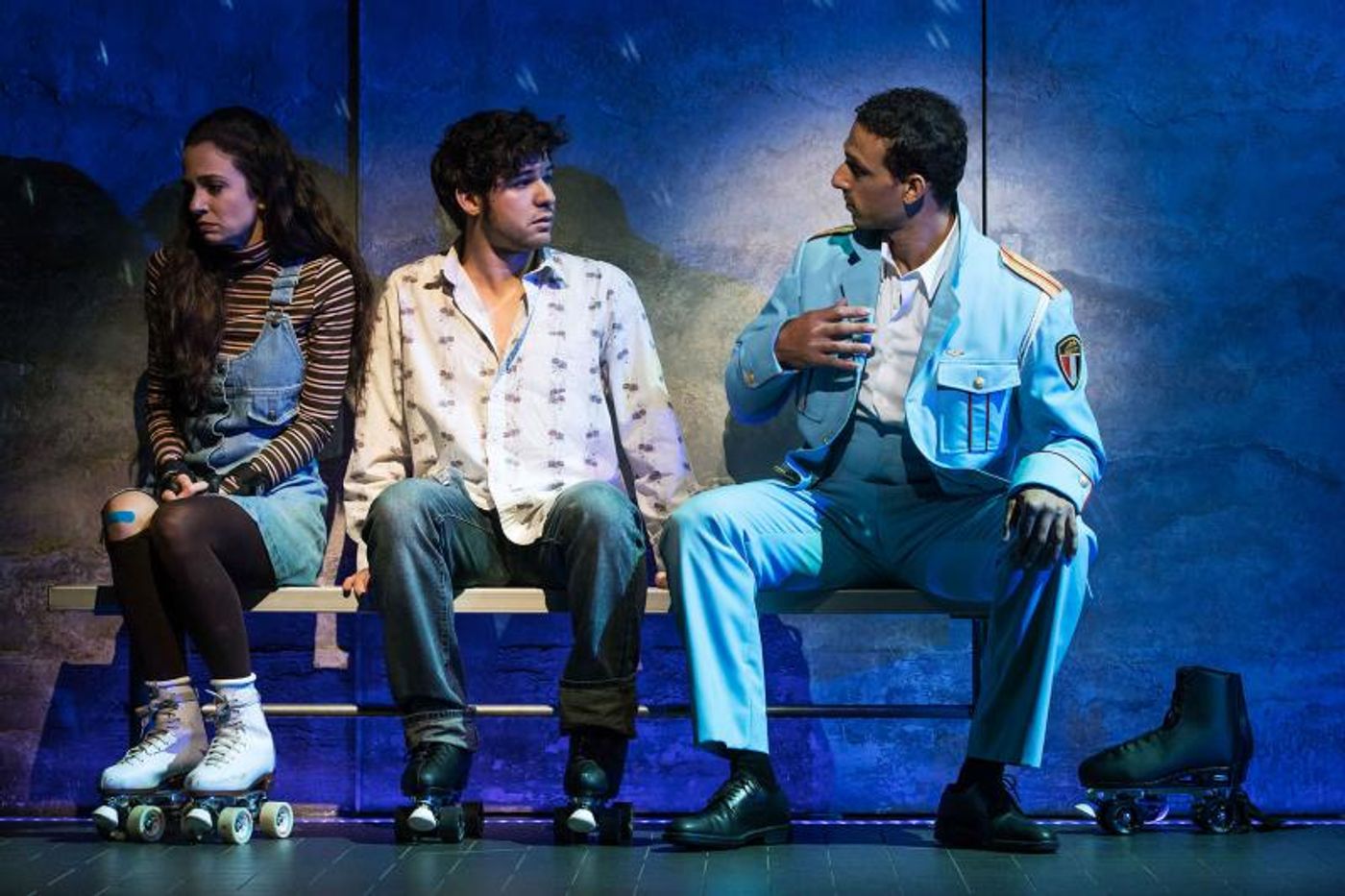
For me, I think it's funny when a character is just 100% certain that they're going to fail. It's very funny to me that even before he meets this girl he knows he is totally going to screw it up. And then, of course, he does. But that's also the beautiful thing that makes it more than just comic relief. In all of these scenes when there's conflict, it takes someone from the other side to help solve it. Papi alone is funny, he's a screw up, he just can't get it right. It takes the the generosity, the kindness, and the reaching out of Haled to suddenly get him there and give him the courage to look the girl in the eye. I think that's part of what elevates it from just a funny song about a guy who can't talk to girls. It's the whole moment, it's the way it works in sequence.
There's also a very key moment with Papi that I think reveals a lot. It's when Haled is fighting with the guard in the roller rink. It's the closest we get to touching on the politics: we see an Israeli guard who's questioning Haled the Egyptian musician and is sort of intimidating him and it looks like it might become violent and Papi comes in and says, in Hebrew so the audience doesn't know what I'm saying because it's in Hebrew, 'it's okay, he's my friend'. It diffuses the situation and suddenly this character Papi who's been funny and a bit of a nebbish and can't talk to girls suddenly shows this humanity. And every single character has moments like that.
Headshot photo by Jennifer Broski
An American in Paris and The Band's Visit production photos by Matthew Murphy
Wicked production photo by Joan Marcus

Powered by
|
Videos

